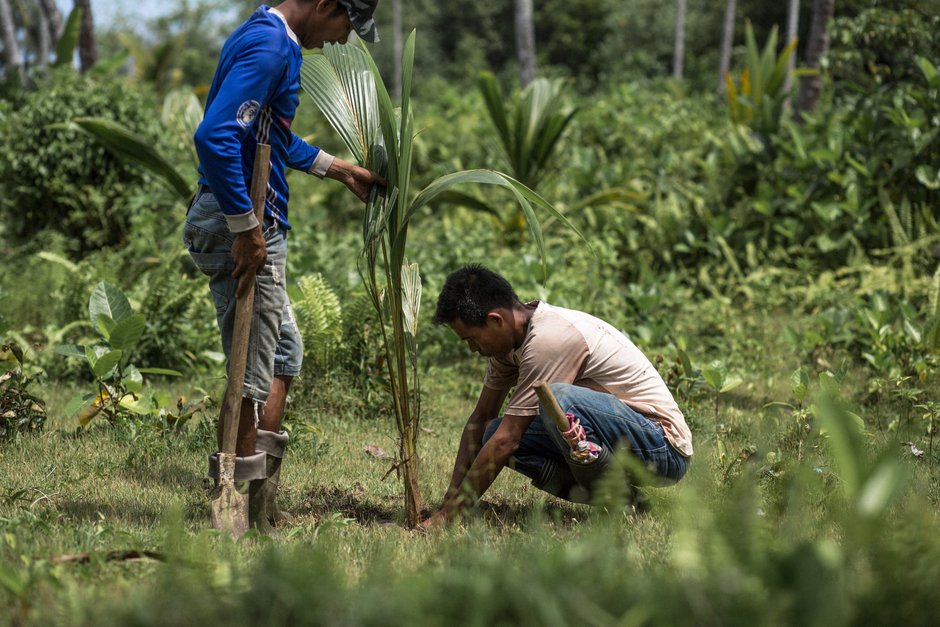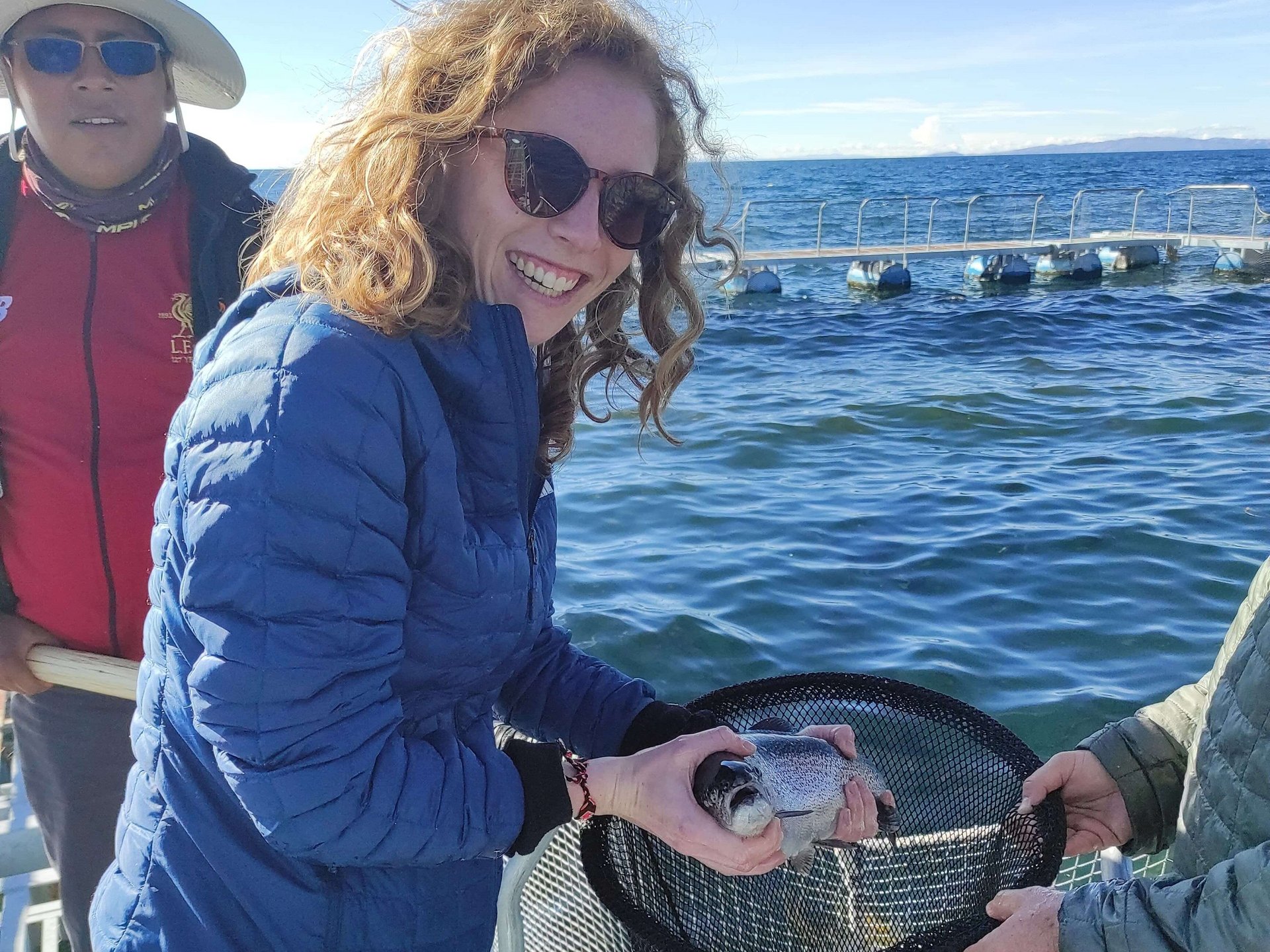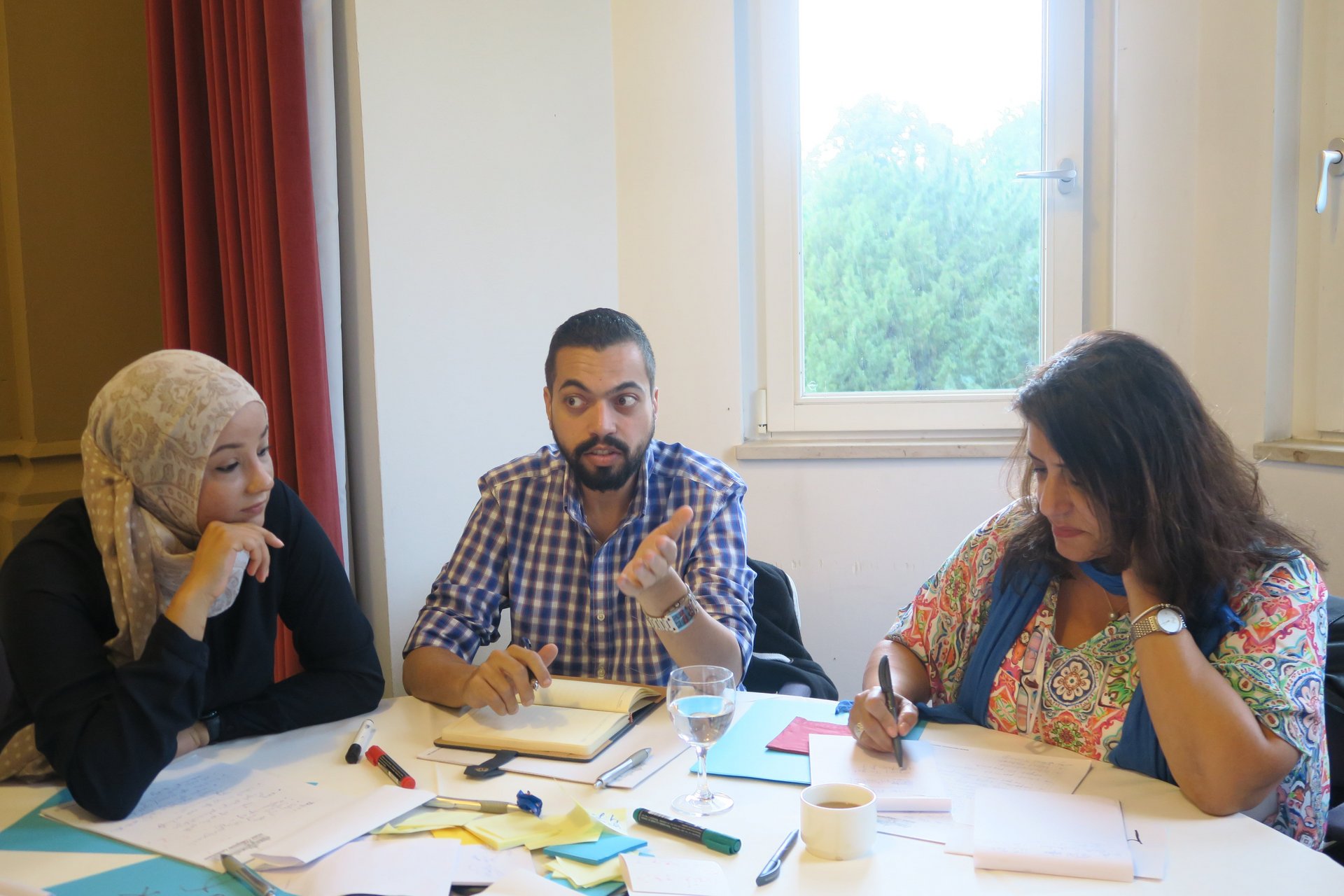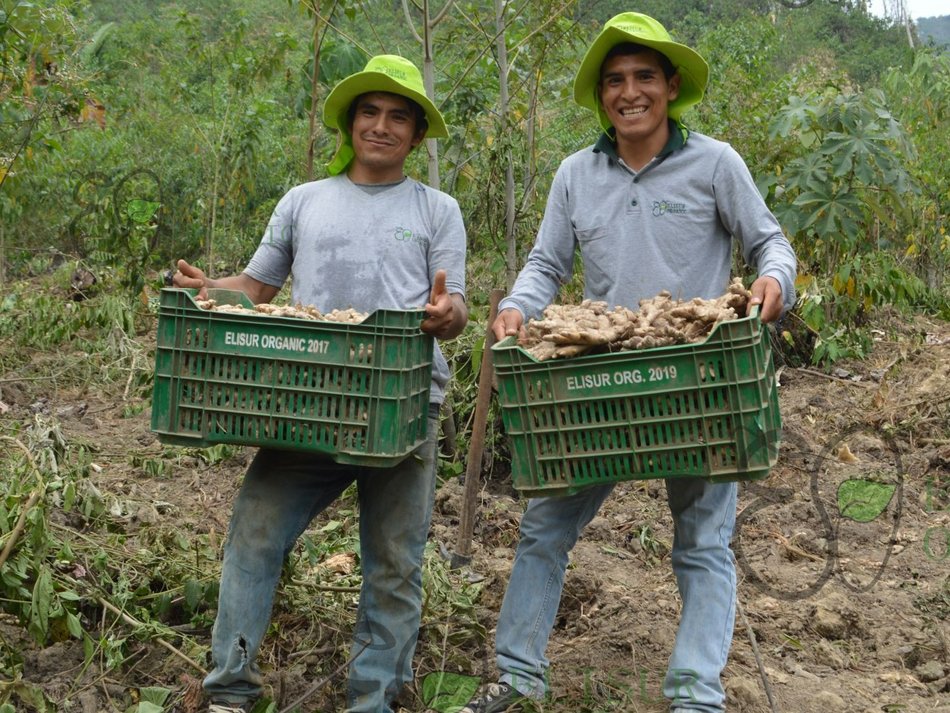ESG issues in development policy
Foreign trade promotion with a sustainable impact
Sustainability is one of the top priorities of the Import Promotion Desk (IPD). A key success criterion of the initiative of the Federal Ministry for Economic Cooperation and Development (BMZ) are the benefits for economic partners - both in the countries of the Global South as well as in Germany and Europe. Long-term partnerships are only possible if both sides benefit from the joint trade relationship.
It`s a win-win situation and lays down the foundation for sustainable economic development in the IPD partner countries.
The IPD takes ESG (Environmental | Social | Governance) criteria into account, i.e. the responsible actions of companies refering to the environment, social affairs and corporate governance. They play an increasingly important role when selecting and promoting companies for the IPD programme. "From the initial sourcing stage, the IPD team pays great attention to the interest and commitment companies show towards sustainability issues. Once the companies have been accepted into the IPD programme, the IPD team supports the partners in implementing appropriate ESG measures.
IPD pursues a holistic approach to sustainability and attempts to reconcile the various facets, such as economic growth, protection of natural resources and strengthening rural structures as well as supporting people in the mostly rural regions - especially women and families.
Sustainable supply chains: Requirements of the market
The importing industry in Germany and Europe is paying increasing attention to sustainability aspects of its trading partners. ESG issues are relevant for many consumers. They base their purchasing decisions on them. At the same time, there are many regulatory requirements in the EU which have to be taken into account by importing companies – such as the Supply Chain Due Diligence Act (LkSG), the European Due Diligence Directive (CSDDD) and the Regulation on Deforestation-Free Supply Chains (EUDR).

This shows that the demand for a sustainable supply is continuously growing on the European market. IPD aims to take this demand situation into account preparing the companies in the IPD programme to meet market requirements.
On other terms companies also benefit directly from their commitment to sustainability. Careful use of resources, whether by the use of renewable energies or a circular economy system, these all can have a positive economic impact. In addition, sustainability is increasingly an argument for the workforce. Corporate commitment can increase employee satisfaction.
As a member of the development policy network „Partners in Transformation – Business & Development Network“, IPD supports the strategy of the German Federal Ministry for Economic Cooperation and Development promoting socio-ecological economic transformation in partner countries.
Promoting sustainable supply:
IPD activities at a glance
Sourcing
Sustainability already plays a role in the selection of new companies for the IPD program. The IPD experts focus on many aspects during their on-site visits. These include certifications, good agricultural practices, responsible use of resources such as energy and water as well as fair working conditions and cooperation with the community.
The IPD team determines the company's willingness to take up or further develop ESG issues.
Specialised sourcing for sustainability
Some sectors in which IPD is active have explicit sustainability requirements. In the Sustainable Tourism and Sustainable Seafood sectors, sustainability criteria already play a major role in the selection of companies.
For example, companies in the Sustainable Seafood sector place a particular focus on sustainability. By the end of the IPD programme, all producers should have sustainability certification.
Consulting and training
IPD has a comprehensive program of capacity building measures on export-related topics. For some years now, this has also included sustainability training courses that inform IPD companies about the fundamental importance of responsible corporate behavior, environmental and social standards and current legal requirements, such as supply chain legislation.
IPD experts also raise companies' awareness of the importance of sustainability standards in individual meetings, advise on individual aspects and point out opportunities for optimisation. E-learning programs and training materials support companies in their commitment to greater sustainability.
ESG-Training
This training supports companies in implementing an effective ESG management system to prepare for the growing expectations of buyers. The focus is primarily on providing information on human rights and environmental due diligence, due diligence and the company's own risk analysis as well as specific adjustments.
In addition, exporters are supported in self-assessment in order to develop risk management systems, action plans and codes of conduct on this basis.
Sustainability Scorecard
In the sustainable tourism sector, the ‘Travelife’ and ‘Tourcert’ certifications are the benchmark for sustainability. The IPD training courses therefore support companies in fulfilling the requirements of these official certifications. However, these systems are not suitable for all IPD companies. IPD has therefore developed a ‘Sustainability Scorecard’. It enables companies to document their progress and provides European tour operators with an assessment tool.
Multipliers for sustainable business
Export promotion organisations in countries of the Global South, so-called Business Support Organisations (BSOs), are important partners of the IPD.
The IPD supports BSOs in further developing their export promotion services so that they can optimally prepare their member companies for the demands of the European market. Today, these requirements include the growing demand for sustainable products and regulatory requirements, such as transparent supply chains. The BSOs address these issues and act as multipliers for sustainable business practices.
BSO training courses on sustainability and due diligence
Using the example of the Regulation on Deforestation-Free Supply Chains (EUDR), the current BSO training course provides information on the regulatory requirements for export companies.
The training introduces due diligence processes, i.e. the establishment of due diligence procedures including risk analysis and reporting obligations.
The aim is for BSOs to develop new services or improve existing ones on the basis of this knowledge and thus provide exporters with optimal support, including with regard to European sustainability requirements.
Interview
"Together, trading partners can develop sustainable supply chains"
Judith Emmerling, team leader of the IPD Sourcing + Markets department in Berlin, presents the IPD's sustainability approach in an interview. She explains the importance of sustainability in global economic relations, how IPD prepares producers for the requirements of the European market and how importers can benefit from direct trade with IPD companies, also regarding transparent supply chains.
Good practice examples: Sustainability has many facets
Sustainability in business practice
There are numerous small and medium-sized enterprises in the IPD programme optimising their production processes, training smallscale farmers in ecological cultivation methods, investing in renewable energies and supporting social projects in their community. All have set themselves the goal of reaching a sustainability certification and are continuously making progress towards their goal.
Thanks to IPD, the companies are familiar with the framework conditions and requirements of the European market. For many of them, responsible use of natural resources and social cohesion in the region are a matter of course. They are already engaged in specific areas and, with the support of IPD, their commitment has given a structure that is also comprehensible for potential trading partners.
Read about the IPD companies' commitment to sustainability here.





